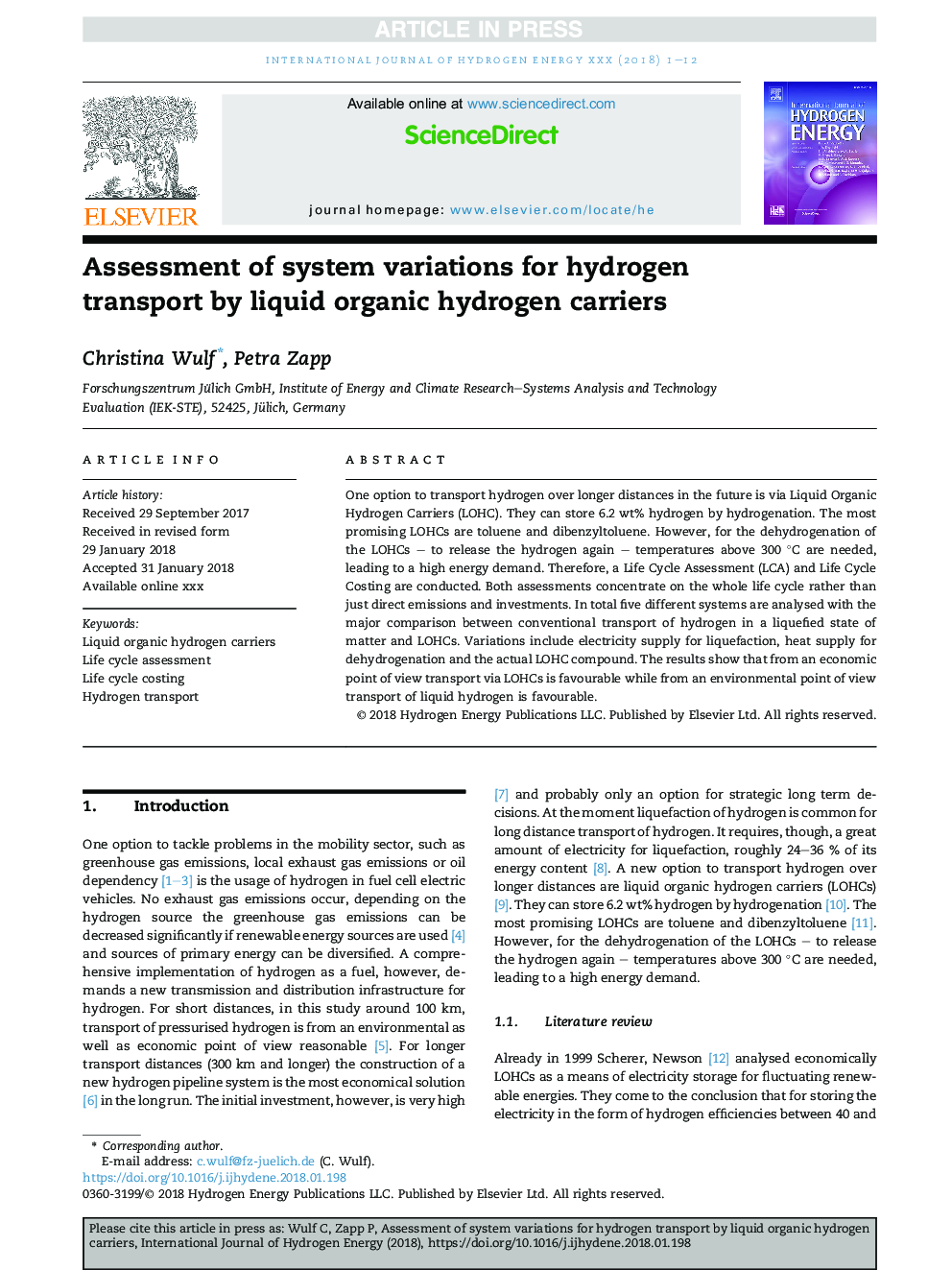| Article ID | Journal | Published Year | Pages | File Type |
|---|---|---|---|---|
| 7705629 | International Journal of Hydrogen Energy | 2018 | 12 Pages |
Abstract
One option to transport hydrogen over longer distances in the future is via Liquid Organic Hydrogen Carriers (LOHC). They can store 6.2 wt% hydrogen by hydrogenation. The most promising LOHCs are toluene and dibenzyltoluene. However, for the dehydrogenation of the LOHCs - to release the hydrogen again - temperatures above 300 °C are needed, leading to a high energy demand. Therefore, a Life Cycle Assessment (LCA) and Life Cycle Costing are conducted. Both assessments concentrate on the whole life cycle rather than just direct emissions and investments. In total five different systems are analysed with the major comparison between conventional transport of hydrogen in a liquefied state of matter and LOHCs. Variations include electricity supply for liquefaction, heat supply for dehydrogenation and the actual LOHC compound. The results show that from an economic point of view transport via LOHCs is favourable while from an environmental point of view transport of liquid hydrogen is favourable.
Related Topics
Physical Sciences and Engineering
Chemistry
Electrochemistry
Authors
Christina Wulf, Petra Zapp,
